Originally printed – October 2011
He was fairly new to trawling and he made a bad mistake. Maybe it was a lack of sleep or physical fatigue that caused a lapse in concentration. Whatever the reason, the break in attention was long enough for him to forget to remove his hand from the stern rail when the trawl door broke the surface, hardened up to the block, and smashed his fingers between the rail and door.
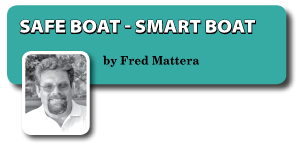
A qualified Coast Guard-approved marine drill instructor, Fred Mattera of Point Judith, RI is the owner/president of North East Safety Training Co. (NESTCo), which conducts fishing vessel drills and inspections and basic safety training workshops.
A commercial fisherman for 40 years, Mattera is a member of the Commercial Fishing Safety Advisory Committee to the Coast Guard, and, since 1998, has been president of the Point Club, a fishing vessel mutual insurance group. He also has served on the board of directors for Sunderland Marine Mutual Insurance Co., the principal underwriter for the Point Club and more than 2,000 US fishing vessels, since 1998.
While conducting drills and inspections on vessels I have observed incidents like this and many others that lead me to be concerned about the lack of safe fishing practices.
I have witnessed crewmen tying up to the dock with their hands under the line instead of on top of the line, setting the stage for potentially crushing or snagging their hand or fingers in the cleat.
During one simulated engine room fire drill, the crew proceeded down the engine room stairs with their backs to the stairs and slid down the last few steps, one of them falling. I’ve seen a crewman walking from the coach to the deck and back barefoot and seen open hatches and deckplates unmonitored or partially covered.
These are the kinds of safety hazards that lead to injuries and possibly even loss of life. Most are generally due to a lack of experience and excessive
fatigue. A common phrase heard these days is, “Fishermen are going further, staying out longer, and with fewer crew.”
That’s what it takes to be profitable but here are a few safety guidelines that everyone can follow to help avoid injuries.
- Learn the ropes from experienced crewmembers.
- Take time to clean the slime and fish waste off the deck, but always assume that decks will be slippery and move accordingly.
- In addition to slick decks, always be aware of open hatches, loose or swinging rigging, and loose lines or gear on deck.
- Stand clear of working lines, warps, and netting.
- Keep a sharp knife handy to cut the webbing or line as the gear is being set out so you can cut yourself free before you go overboard if you get snagged.
- Don’t stand or walk under suspended loads or pass a suspended load over someone else.
- Don’t walk on or straddle lines, and never stand in the loop of a line.
- Avoid sliding your hands along wire cables because broken wires can tear your hands.
- Always know where fellow crewmen are and be sure you can communicate with each other.
- Don’t try to lead cable onto the winches with your hands or feet. Use an iron bar or pipe to guide the cable onto the winch if necessary.
- Stay alert when the trawl doors are coming aboard.
- Use a stern line or gate in the stern ramp when hauling or setting gear.
- Be sure there are physical barriers or guards between equipment and crewmembers.
- When tying up, always place your hands over the line, not beneath the line.
- Always face a ladder when climbing up or down and stay clear of tripping hazards.
- Know the location of all fire extinguishers and how to operate them.
- Never walk barefoot on the deck. Always wear appropriate boots or deck shoes.
- Become familiar with emergency procedures and alarms.
- Keep all watertight doors and hatches closed and secured, and replace or re-secure hatch covers and deckplates when underway and at sea.
- Learn the location of the first-aid kit and use it when needed. Report all injuries, including scratches, cuts, burns, and sprains to the captain at once, no matter how minor they appear to be.
- When repairing, checking, oiling, cleaning, or adjusting equipment, be sure that power switches are turned off and won’t be turned on by other crewmembers.
- Avoid loose clothing, hooded sweatshirt strings, and loose-fitting rain gear, especially near winches and belt- or chain-driven equipment.
- Notify the captain immediately if you see damaged or defective equipment or any hazard to the crew. Keep safety in mind at all times and know the proper way to perform your job.
- Wipe up oil and/or fuel leaks or spills.
- Always notify a fellow crewman before you go into the fish hold or confined space and use a gas monitor if available.
- Follow proper watchkeeping standards.
- Install emergency shut-off switches for hydraulics and PTOs.
- Install spring-loaded valves on all hydraulics, including net drums and winches.
- Practice good housekeeping in the galley, engine room, pilothouse, bunkroom, and on deck.
- Wear safety glasses when grinding, chipping, or doing other work that produces flying particles.
- Wear a personal flotation device (PFD) in rough seas and while hauling and setting gear at a minimum.
- Learn how to lift, load, and unload cargo. Bend your KNEES, not your BACK.
- Never smoke in your bunk, in a confined area, or when fueling. And,
- Captains, don’t allow alcohol or illegal drugs onboard. Crewmen, don’t bring them. If you are taking prescribed medication, inform the captain and show him the prescription.
A lot of these safety guidelines may seem like plain common sense, especially to seasoned fishermen who know how dangerous their world is. But a green crewmember or someone who’s moving into a different fishery may not recognize new hazards.
Understanding and staying alert to the dangers can help you and that new guy keep your fingers, your gear, and your life. Keep your mind on your work, and try to anticipate what will happen next. Injuries happen fast.
Fred Mattera
NESTCo
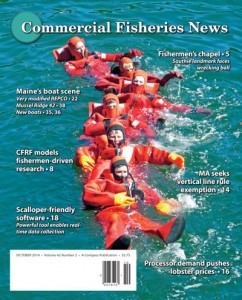
Read the rest of these features and much more in the October issue of Commercial Fisheries News.
Read our Online Flip-Book immediately by purchasing this month’s access key. PDF download available when you purchase any issue


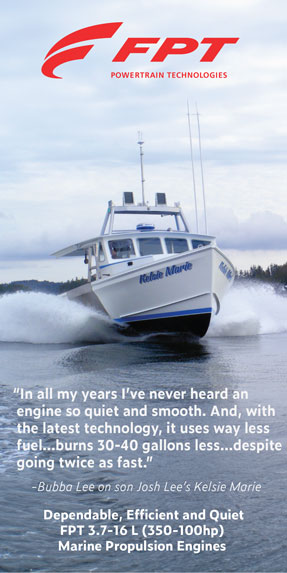
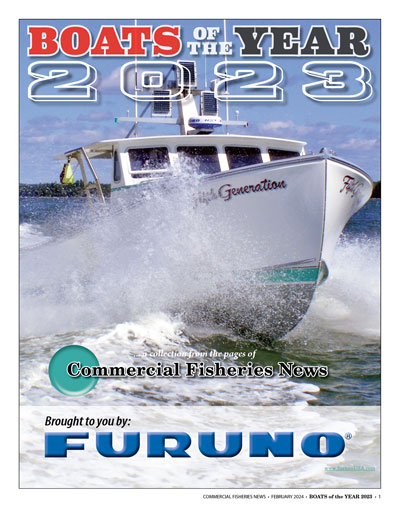
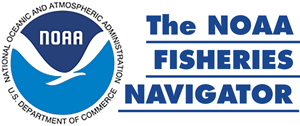

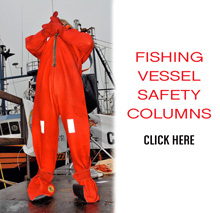
 Updating...
Updating...